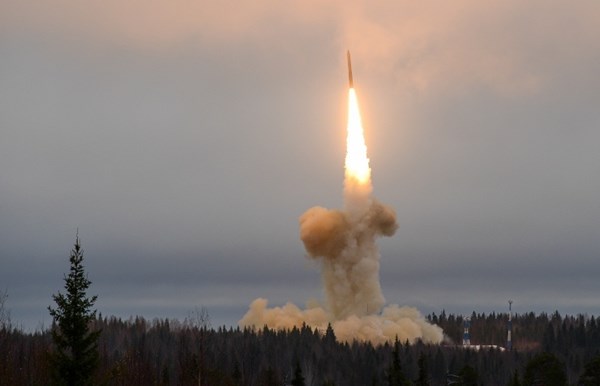Russia threatens to deploy nuclear missiles near EU borders
Russia will deploy medium and shorter-range missiles near EU borders if U.S. missiles are deployed in Europe, Russian Deputy Foreign Minister Alexander Grushko told Interfax.
According to him, the missiles will be deployed along the borders with Baltics and Poland, if the U.S. moves missiles previously deployed in Germany to these regions, as proposed by the U.S. Ambassador to Poland Georgette Mosbacher.
"Those countries that are now literally fighting for the American military presence in any form, for the status of "front-line" states - I mean Poland and the Baltic states - should understand all the costs of such a choice in terms of their own security and their allies," Grushko warned.
According to him, Russia's position has not changed since the collapse of the Intermediate-Range Missile Treaty. "If there are no American missiles in Europe, we will not deploy ours. As soon as the missiles appear, we will deploy ours there," Grushko explained.
If the U.S. moves tactical nuclear weapons from Germany to Poland, "all necessary measures, including military ones, will be taken," he added. So far, there have been only hints of such a scenario, and no one has reached concrete agreements on this matter. "But taking into account how unabashedly, without taking into account anyone’s interests, the United States operates, this possibility cannot be completely excluded," Grushko said.
The result will be chaos in arms control and the collapse of the founding act of NATO-Russia. "It will be just a death verdict to this document," the diplomat said. He reminded that Moscow already has claims to the United States, as universal launchers of missile defense system in Poland and Romania, allow to launch medium-range missiles, which Moscow considers as a direct threat.
In Romania, the missile defense system is ready, "there are MK-41 launchers, from which it is possible to launch various types of missiles," Grushko said. In Poland, the completion of the missile base is scheduled for 2021.
"This will further upset the balance, will pose a direct threat to the interests of the Russian Federation, especially given that not even two weeks after the withdrawal from the INF, the Americans conducted tests of land-based cruise missiles," the deputy foreign minister said.
"The same MK-41 launchers are used by American warships which are equipped with the Aegis Ashore Ballistic missile defense systems. Tomahawks, i.e. medium-range missiles, are also loaded there," Grushko said, adding that "all this is, of course, taken into account in the defense planning process."
On June 2, Russian President Vladimir Putin signed a decree approving the "Basics of the State Policy of the Russian Federation in the field of nuclear deterrence", expanding the list of conditions for the use of nuclear forces and de facto burying the principle of "counter-strike" that Moscow had at the forefront since Soviet times.
According to the military doctrine of 2014, the Russian president could push the "nuclear button" in the event of use of nuclear and other weapon of mass destruction against Russia, as well as during aggression with the help of conventional armed forces, if the "very existence of the state" is threatened.
Now, according to the "Basics of The State Policy of Nuclear Deterrence," Russia can launch nuclear missiles if the enemy exerts "an impact on critical state or military facilities." As for the facilities, it is an infrastructure that will "disrupt the response of nuclear forces," the document says. Whereas in the past it was solely about the "use" of nuclear or other weapons of mass destruction by the enemy, now the basis will be considered "the receipt of reliable information about the launch of ballistic missiles" in the direction of Russia.
Russia can also launch nuclear strikes in response to an attack against its "allies," according to the new doctrine. An attack by both nuclear and other "weapons of mass destruction" can be considered a condition for Russia’s response.
